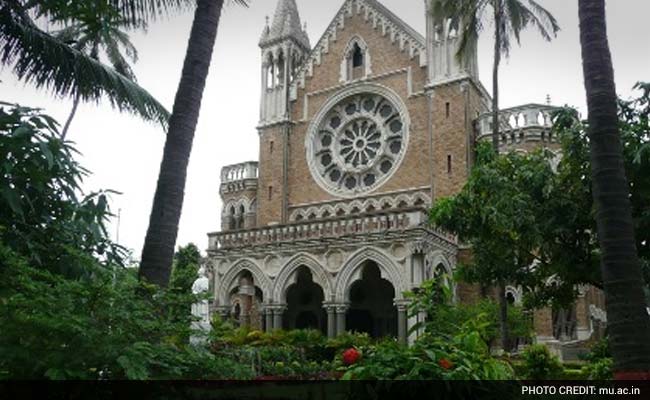In a recent development, the University of Mumbai has imposed a fine of ₹1.1 lakh on the Institute of Management and Computer Studies (IMCOST) situated in Thane. This penalty was imposed due to administrative mismanagement that resulted in two students facing a three-year delay in receiving their graduation marksheets. The university’s investigation unearthed significant infractions committed by the college, leading to the fine being paid promptly.
Kritika Rathod and Malayel Bavachan, ex-students, took their Bachelor of Management Studies (BMS) final year exams four years in the past. Rathod’s academic journey hit a roadblock when she failed in two subjects. To overcome this setback, she reappeared for the exams to clear the failed subjects and successfully passed an online examination aligned with the new syllabus in October 2020. Despite her success, Rathod did not receive her marksheet. Bavachan had a similar experience.

Frustrated by the lack of progress, both students lodged formal complaints with the University of Mumbai through Maharashtra Navnirman Vidyarthi Sena (MNVS) member Sandeep Pachange. Their complaints triggered a thorough investigation into the matter, which brought to light significant irregularities committed by IMCOST.
Narendra Khalane, the deputy registrar of the University of Mumbai, communicated the penalties imposed on the college. These penalties included ₹30,000 each for admitting the students to a new course without prior authorization from the university, and an additional ₹25,000 for each student for allowing them to take the examination. Responding to these findings, the college duly deposited the fine with the university and committed to providing the long-awaited marksheets to the students in the near future.
Sandeep Pachange of MNVS emphasized the importance of such punitive measures in maintaining academic standards and safeguarding students’ rights. He noted that the college’s lapses had adversely affected the career prospects of the students, leaving them in a state of uncertainty and hindering their efforts to secure employment opportunities. Pachange went on to suggest that the college should go beyond just paying the fines and consider compensating the affected graduates for the career setbacks they endured over the last four years.

Kritika Rathod expressed her frustration with the situation, revealing that despite reports of the college being fined by the university, she and Bavachan had not received their mark sheets or any communication from the college. Rathod emphasized that they had been fighting for three years to obtain their marksheets and were now hopeful that they would finally receive them soon.
Despite these developments, attempts to contact key individuals at IMCOST, including the principal Irshad Qazi and institute director Dattatraya Kulkarni, yielded no response. This lack of engagement raises questions about the college’s commitment to addressing the issue and ensuring timely resolution.

The recent imposition of a ₹1.1 lakh fine on the Institute of Management and Computer Studies by the University of Mumbai has brought to the forefront the significance of maintaining administrative efficiency and upholding academic standards within educational institutions. This incident not only serves as a cautionary tale but also underscores the far-reaching consequences of administrative negligence on students’ educational journeys and future prospects.
Mumbai University on Marksheets Delay
At the heart of this issue lies the vital aspect of administrative efficiency. Educational institutions, especially universities and colleges, function as complex ecosystems where various administrative processes and procedures need to be meticulously managed. These processes encompass student records, enrollment, assessment, graduation, and the issuance of academic documents, such as transcripts and certificates. Any breakdown or negligence in these administrative functions can lead to a cascading effect of problems that can severely impact students’ educational experiences.
In the case of the Institute of Management and Computer Studies, the imposition of a significant fine points towards a failure in the administration’s responsibilities. This situation can have grave repercussions for the affected students. One of the most immediate consequences is the delay in receiving their well-deserved graduation marksheets. These marksheets are not just pieces of paper; they represent years of hard work, dedication, and intellectual growth. Without them, students may face difficulties in proving their educational qualifications to potential employers or for further studies.
Moreover, administrative negligence can erode the trust that students and their families place in the institution. The uncertainty caused by such incidents can create anxiety and stress among students who are eagerly awaiting their marksheets. This can hinder their ability to confidently pursue career opportunities or higher education pathways.
Furthermore, the incident also highlights the broader issue of accountability within educational institutions. Educational organizations have a responsibility to provide timely and accurate information to their students. When this responsibility is not upheld, students may feel betrayed by the institution and left to bear the consequences of administrative shortcomings that were beyond their control.
The resolution of this long-standing issue is crucial not only for the affected students but also for the reputation of the Institute of Management and Computer Studies and the University of Mumbai. Timely and transparent resolution demonstrates the institution’s commitment to its students and their educational welfare. It sends a message that administrative errors are taken seriously and will be rectified promptly.
The imposition of a fine on the Institute of Management and Computer Studies by the University of Mumbai serves as a reminder to all educational institutions about the critical importance of maintaining administrative efficiency and upholding academic standards. The incident showcases the potential dire consequences of administrative negligence on students’ educational journeys and future prospects. It is an essential lesson in the significance of responsible administration and the need to prioritize the well-being and educational aspirations of students.
.












